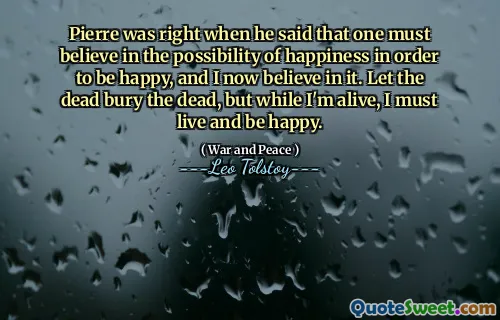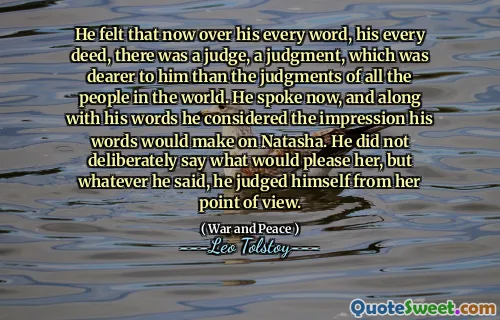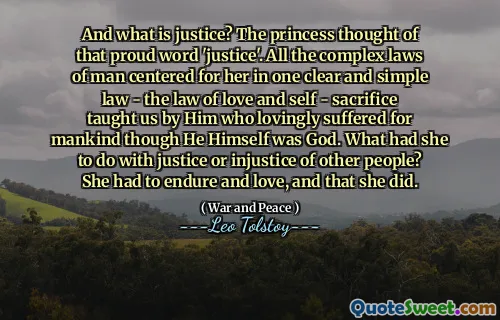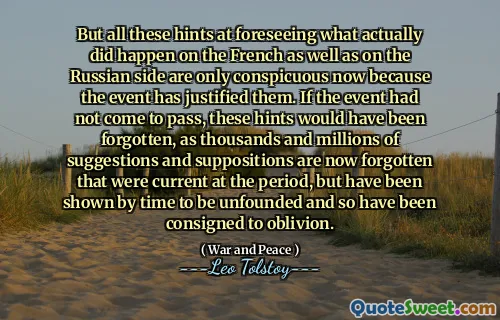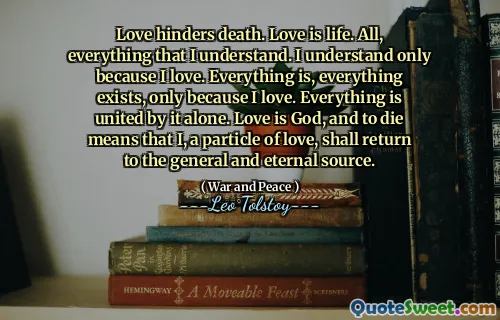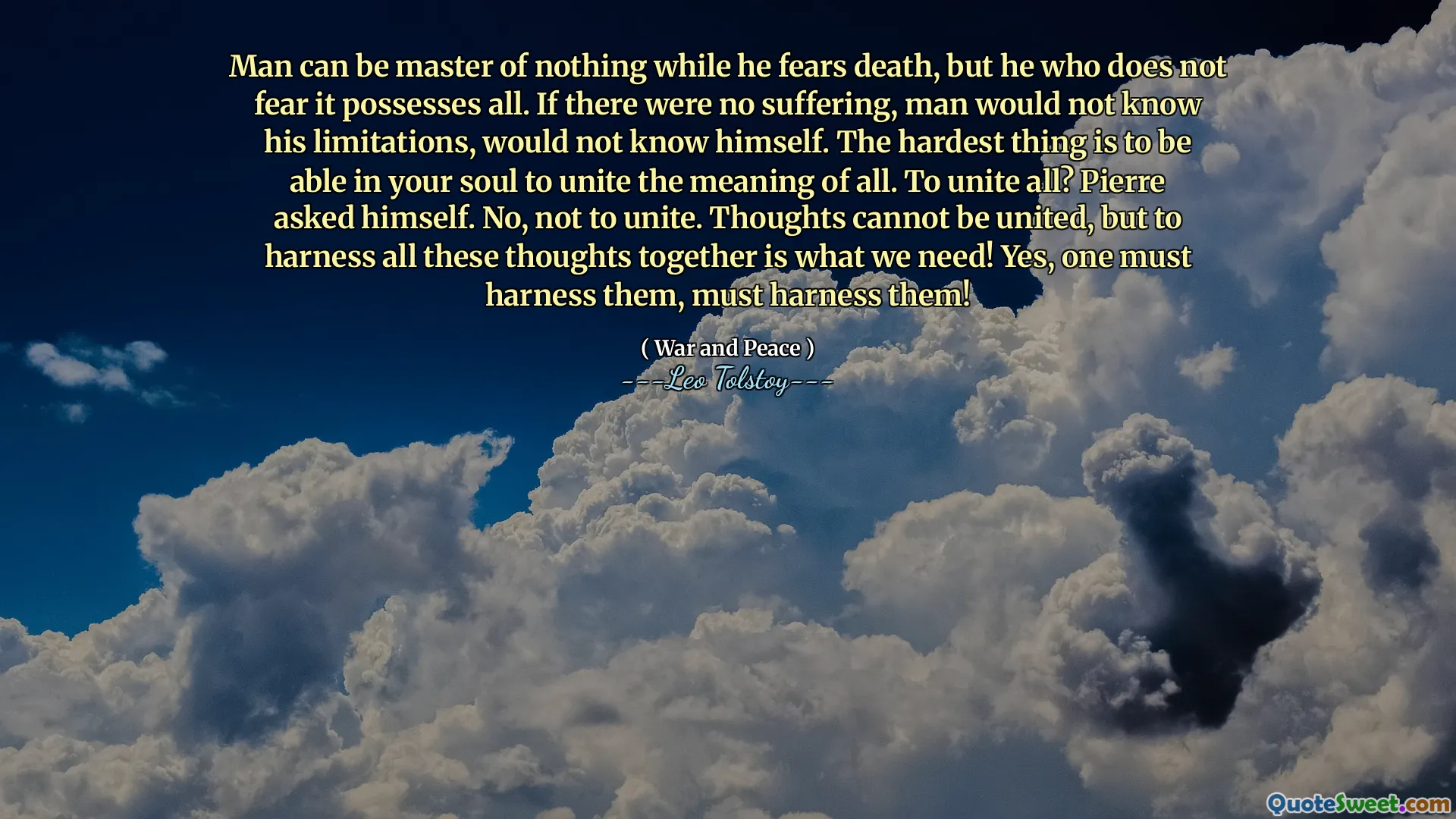
Man can be master of nothing while he fears death, but he who does not fear it possesses all. If there were no suffering, man would not know his limitations, would not know himself. The hardest thing is to be able in your soul to unite the meaning of all. To unite all? Pierre asked himself. No, not to unite. Thoughts cannot be united, but to harness all these thoughts together is what we need! Yes, one must harness them, must harness them!
This quote explores the profound relationship between fear, suffering, self-awareness, and mental discipline. It reflects on the paradox that fearing death diminishes our mastery over life, whereas embracing the inevitability of mortality grants us a greater sense of sovereignty. Suffering, often perceived as an adversary, is reinterpreted here as a necessary catalyst for self-discovery and understanding our limitations. It suggests that through experiencing hardship, we gain insight into our true nature, much like the ancient Stoics who viewed obstacles as opportunities for virtue. The emphasis on uniting or harnessing thoughts points to the importance of mental cohesion and discipline. Instead of seeking to merge all ideas into a single, unified doctrine, the focus shifts to controlling and aligning our mental energies to achieve clarity and purpose. The dialogue of Pierre questioning whether to unite or harness reflects the ongoing challenge within us to find balance amidst chaos, between an intrinsic chaos of thoughts and the desire for internal harmony. Overall, this quote encapsulates a philosophical outlook on human existence: that through acceptance of mortality and suffering, coupled with the ability to discipline the mind, individuals can attain a sense of mastery and self-realization. It invites readers to reflect on their own internal struggles and the importance of mental discipline as a pathway to profound understanding.
